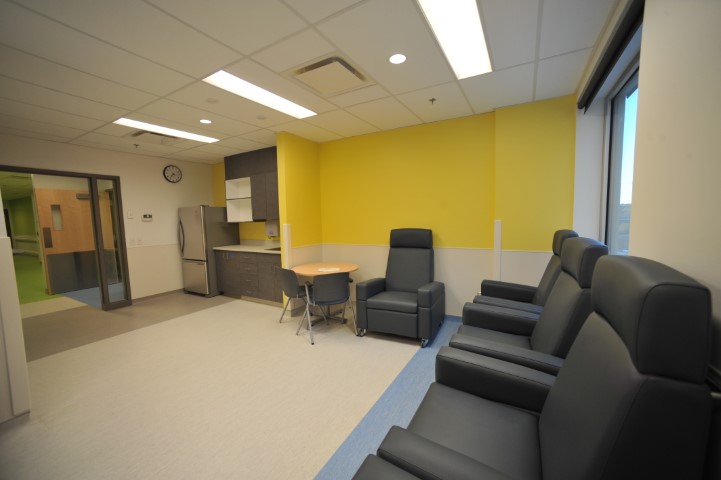My father was suffering from an idiopathic intra-abdominal bleed, and beginning to struggle with maintaining his blood pressure. Why was it taking so long for blood to arrive? Why hadn’t an A-line be placed yet? Where is the surgery consult resident?
Questions swirled around my head, combining with the tears of my mother and sister, forming a judgement-clouding miasma in brain. I have a very difficult time telling even the smallest of lies, and when they asked me if he would be okay, I had no choice but to tell them, “I don’t know.”
When the ED attending finally made his way over, he didn’t exactly exude a sense of hope, or confidence that Dad would be able to weather this pathophysiologic storm.
My family obviously chose me as our medical representative to get the story from the attending. I was trying to put the story together, blindly offering suggestions for his differential diagnosis. The doc stopped me, looked me in the eye, and told me,
“Your job is to be his son, not his doctor.”
My reactionary thought was that the ED attending was being condescending, not respecting my medical acumen. But when I was able to remove my emotions from the situation a bit, I realized he was exactly right. By trying to think through his disease and treatment options, there was no way I could effectively just be his son, offering my love, support, and encouragement to father and family while he was in extremis. And in this moment, that was my only job.
There is no page in First Aid that teaches us how to handle the difficult situation of having a loved one fall ill. We feel compelled, almost forced, into the role of advocate and provider. We believe ourselves to be in the perfect spot of possessing the patient’s entire history inside and out, and the medical acumen to use such information to opt for the right treatment. Yet objectivity is almost impossible. How can we extricate our extreme emotions from this situation? Why would we want our family member treated any differently (other than “better”), by any different algorithm than anyone else who was brought through the ED doors? What is the health care provider’s role in guiding an ailing family member through the medical system?
Be an advocate
Your most important role is that of an advocate. Even more importantly, this should define the limits of your role. While it is perfectly acceptable to be inquisitive, coming across as meddlesome might have a negative impact on the care of your loved one. I’m not suggesting that the care team will intentionally neglect him or her, but more so that the intern, resident, or nurse might be less enthused to check on the patient, or at the very least, will do so with less alacrity. You never want to overstep your bounds such that your loved one gets labeled as “the patient with the impossible family.”
Advocating means giving a voice, in your case a medical one, to your family member in need. It is asking for more time and information from the care team when needed, and ensuring that your family receives the explanations they need to make informed decisions.
Don’t expect to solve the problems
Back to the attending’s directive to me – while your family might call upon you to figure out “what’s wrong with mom” and lean on the doctors to treat her better than other patients, you are not the patient’s doctor. You can ask educated questions and provide useful information, but you should not, even unintentionally, interfere in the workup that the team is embarking on. Be honest with the rest of your family, and with the patient. When asked things like “Why did her hemoglobin drop 0.3, why isn’t she getting better faster, or how long does it take for test X to run,” there will likely be a lot of “I don’t knows,” and that’s fine. Sublimate your energy into being a family member and showing love and compassion for the patient, instead of overly involving yourself directly in their care.
Using your knowledge appropriately
Your medical knowledge with certainly be a boon during this difficult time. But not in helping your family member to get better. Utilize your smarts to make sure your family understands what’s going on, so far as they desire to. Don’t impress them with your knowledge of the literature; translate the esoteric into the digestible. Hospitalizations can be exceedingly complicated for the uninitiated. Winnow the abundance of information down to the necessary so that everyone sees the forest for the trees, and doesn’t get hung up on a creatinine that’s gone from 2.3 to 2.4. Most importantly, be honest but tactful in your explanations. Find a way to tell the truth to all stakeholders, exercising empathy during a difficult time.
Think of yourself in their shoes
Which patient do you give the best treatment to? While we would like to say “I deliver the same top-notch care to every patient that I care for,” to believe everyone is treated exactly the same is naive. The patients (and the patients’ families) who are the most reasonable, friendly, and unintimidating are those who get the most positive attention. As doctors, we love to help and care for people who want to get better, who treat us with respect, and who appreciate our hard work. Your brother’s doctor and nurses will appreciate the same.
A final caveat: obviously, if there is gross medical error/neglect, do not hesitate to intervene and speak up. Mistakes and care that is too lax are not rare events, and advocacy is a final barrier between them and the patient.
Also worth nothing: Dad’s doing great.





